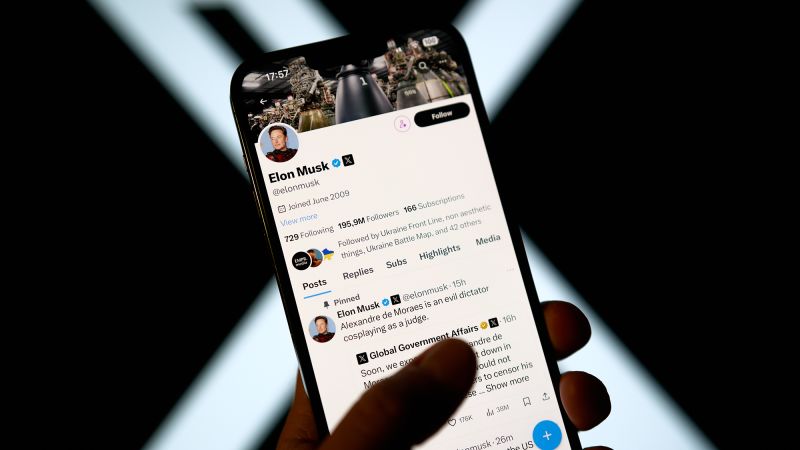A record number of firms are planning to cut advertising spending on X next year due to concerns about extreme content on the platform potentially damaging their brands. According to a global survey by market research firm Kantar, a net 26% of marketers plan to decrease spending on X in 2025, marking the biggest pullback from any major global ad platform. Only 4% of marketers believe that X ads provide “brand safety” compared to 39% for Google ads. Kantar’s global thought leadership director for media, Gonca Bubani, stated that advertisers have been shifting their marketing spend away from X for several years, with a turnaround seeming unlikely.
Consumers, however, have a more positive perception of ads on X because there are fewer than there used to be. Despite Elon Musk’s attempts to woo advertisers during the Cannes Lions advertising festival in June by agreeing that advertisers have the right to appear next to content compatible with their brands, efforts to improve relationships with advertisers appear unsuccessful. Musk recently filed a lawsuit against an influential ad industry body, accusing them of conspiring to boycott X. A spokesperson for X stated that the platform now offers stronger brand safety, performance, and analytics capabilities, with a brand safety rate of 99% on average, as validated by DoubleVerify and Integral Ad Science.
Since Elon Musk’s takeover of X in 2022, big brands have withdrawn from the platform over concerns about content moderation and uncertainty about the platform’s direction. Musk’s own comments on X have also alarmed advertisers, with about a dozen prominent brands halting ad spending last November due to concerns about antisemitism and hate speech linked to Musk’s endorsement of an antisemitic conspiracy theory. The Kantar report, based on interviews with senior marketers and consumers in more than two dozen countries, found that X did not rank in the top 10 for trust or perception of innovative advertising on the platform. YouTube remains the preferred ad platform for marketers, while consumers favor Amazon and TikTok.
Meanwhile, Brazilian President Luiz Inácio Lula da Silva recently criticized Elon Musk’s “far-right anything goes” agenda, stating that the world is not obligated to tolerate his views due to his immense wealth. Brazil recently blocked X following a Supreme Court order because Musk refused to appoint a new legal representative in the country, escalating a feud over free speech and the spread of misinformation online. These actions reflect growing concerns about Musk’s influence and the content on his social media platform, leading to repercussions in the advertising industry and on a global scale. The future relationship between X, advertisers, and regulators remains uncertain as the platform faces ongoing challenges in terms of brand safety, content moderation, and trust among users.













